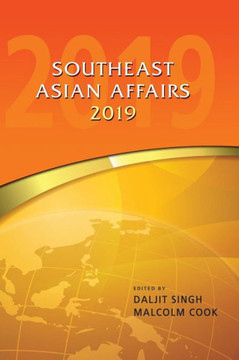
Institute of Southeast Asian Studies
Gender and Ageing : Southeast Asian Perspectives
Product Code:
9789814517973
ISBN13:
9789814517973
Condition:
New
$49.35
$43.77
Sale 11%

Gender and Ageing : Southeast Asian Perspectives
$49.35
$43.77
Sale 11%
This book examines common themes related to gender and ageing in countries in Southeast Asia. Derived from quantitative or qualitative methods of data collection and analysis, the chapters reveal how ageing has become tempered by globalization, cultural values, family structures, women?s emancipation and empowerment, social networks, government policies, and religion. The chapters are concerned primarily with the following questions related to gender and ageing: (a) how do women and men experience old age? (b) do women and men have different means of coping financially and socially in their old age? (c) does having engaged in wage work for longer periods of time serve as an advantage to older men in contrast to older women? (d) does a woman?s primary role as caregiver serve to disadvantage her in old age? (e) what kinds of identities have older women and men constructed for themselves? (f) do women and men prepare for ageing differently and has this preparation been mediated by educational levels? (g) does having a higher level of education make a difference to how one experiences ageing? (h) how does class shape the way women and men cope in old age? and (i) what does it mean to be a ?single? older person who has either lost a spouse through death or has never been married? Because the book employs a cross-country analysis, readers gain an understanding of contemporary emergent trends not only in each of the countries but also in Southeast Asia as a whole. Wherever relevant, some chapters have also identified similarities in trends on gender and ageing between countries in the Western hemisphere and those in Southeast Asia to highlight broader patterns across the world. "The share of the elderly in Southeast Asia?s population is steadily rising, and it is increasingly important to understand and plan for the implications of this trend. While in some aspects, the situation of older women and men in the region is similar, their life experiences of education, marriage, child-raising, work, and social networks differ, and this makes for different issues as they grow older. Moreover, a much higher proportion of elderly women than men face old age without a spouse. This book makes a major contribution to understanding the issues arising from ageing trends in Southeast Asia. Individual chapters in the book deal authoritatively with almost every country in the region, and are written by noted experts on the subject. The book will be an essential reading for anyone wishing to understand ageing issues in Southeast Asia, particularly from the perspective of gender." - Gavin Jones, Director, JY Pillay Comparative Asia Research Centre, National University of Singapore
| Author: Theresa W. Devasahayam |
| Publisher: Institute of Southeast Asian Studies |
| Publication Date: Aug 20, 2014 |
| Number of Pages: 373 pages |
| Language: English |
| Binding: Paperback |
| ISBN-10: 9814517976 |
| ISBN-13: 9789814517973 |





